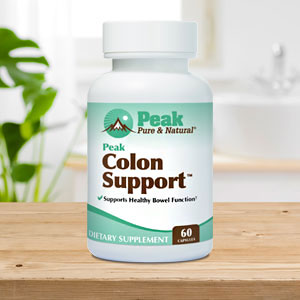Get Easy Health Digest™ in your inbox and don’t miss a thing when you subscribe today. Plus, get the free bonus report, Mother Nature’s Tips, Tricks and Remedies for Cholesterol, Blood Pressure & Blood Sugar as my way of saying welcome to the community!
Worried about Alzheimer’s, cholesterol and blood pressure? There’s a tea for that

I love herbal teas. A cup of lavender tea is my go-to “nightcap.”
But there’s one I haven’t tried yet.
I don’t know why I’ve neglected hibiscus tea for so long. Besides its gorgeous, ruby-red color and unique flavor, it has so many health benefits to recommend it!
Let’s go over what the existing science shows, plus recent research that’s found hibiscus tea may hold the key to a new Alzheimer’s drug…
Hibiscus helps activate cells that guard against Alzheimer’s
Two researchers at Pohang University of Science and Technology in Korea have discovered that a natural compound in the hibiscus plant has the power to activate the cells in our brain that can launch a direct attack on developing Alzheimer’s disease.
Alzheimer’s disease begins as beta-amyloid and tau proteins clump and tangle in brain tissue. Microglia are the immune cells within the brain that gather up these clumps and tangles, kind of like protective vacuum cleaners.
But microglia can become exhausted when the demand for cleanup is constant. The result is a chronic inflammatory reaction that damages nerve cells, leading to cognitive decline and memory loss.
The Korean research team treated mice that modeled symptoms of Alzheimer’s with gossypetin, the natural flavonoid found in the hibiscus plant.
After three months of feeding it to mice, they saw that their memory and cognition were almost restored to a normal level. And, there was a decrease in beta-amyloid clumping, indicating that gossypetin was helping microglia to clear out these clumps.
Healthy Hibiscus 101
Many health benefits have been previously attributed to hibiscus. Here are some highlights:
Antioxidants. Animal studies have found that the antioxidants in hibiscus tea lower glucose and blood cholesterol, thus fighting metabolic syndrome.
Lower blood pressure. Studies have shown that drinking hibiscus tea lowers both systolic and diastolic blood pressure. But if you’re already taking medication for high blood pressure, better check with your doctor — this tea could interact with those medications and if you plan to drink it regularly, they may need to adjust your medication.
Lower blood cholesterol. The results are conflicting here, but there is some good news. Some studies have shown that drinking hibiscus tea can lower LDL (“bad” cholesterol) in people with diabetes and metabolic syndrome.
Weight loss. A few human and animal studies have linked hibiscus extract with decreased body weight and body fat, but again, more research is needed.
Drinking hibiscus tea
Hibiscus can be found in jellies and dietary supplements, but the easiest and most pleasant way to add it to your diet is by drinking hibiscus tea.
Hibiscus tea is an herbal tea that’s made by steeping the petals of the hibiscus flower in boiling water.
The tea has a tart flavor, kind of like cranberries, and it can be enjoyed both hot and cold.
Of the few hundred species of hibiscus that grow in various locations, Hibiscus sabdariffa is most commonly used to make hibiscus tea.
You can purchase it in tea bags at most local stores or health food stores. Or you can buy loose-leaf hibiscus tea or dried hibiscus flowers.
Steep the tea for five minutes before you strain and drink it. And be careful when handling hibiscus tea — that beautiful red color will stain anything it’s spilled on!
Editor’s note: There are perfectly safe and natural ways to decrease your risk of blood clots including the 25-cent vitamin, the nutrient that acts as a natural blood thinner and the powerful herb that helps clear plaque. To discover these and other secrets of long-lived hearts, click here for Hushed Up Natural Heart Cures and Common Misconceptions of Popular Heart Treatments!
Sources:
Gossypetin found in hibiscus may beat Alzheimer’s disease Eureka Alert
Gossypetin ameliorates 5xFAD spatial learning and memory through enhanced phagocytosis against Aβ Alzheimer’s Research and Therapy
The tea that tames metabolic syndrome — Easy Health Options














